15 years one-stop China custom CNC machining parts factory

Hey there I’m VMT Sam!
With 25 years of CNC machining experience we are committed to helping clients overcome 10000 complex part-processing challenges all to contribute to a better life through intelligent manufacturing. Contact us now
 698 |
Published by VMT at Sep 25 2023
698 |
Published by VMT at Sep 25 2023
How long does it take to CNC machining parts?
CNC machining, as a crucial process in modern manufacturing, facilitates the production of precision components through intelligent computer control. It has found widespread applications across various industries. During the manufacturing process, the complexity of a part has a profound impact on the machining time. From simple geometric shapes to highly intricate structures, the machining time for each part is determined by a combination of factors.
This article will explore the time required for CNC machining from the perspective of different part complexities and delve into the influence of geometric shapes, machining processes, and related parameters on machining time. By analyzing the machining time for parts of varying complexities, we can gain a better understanding of the essence of CNC machining and provide valuable guidance for decision-making and optimization in the manufacturing industry. Whether it's the rapid machining of simple parts or the meticulous production of highly complex components, CNC machining technology is continually evolving, injecting new efficiency and precision into modern manufacturing.
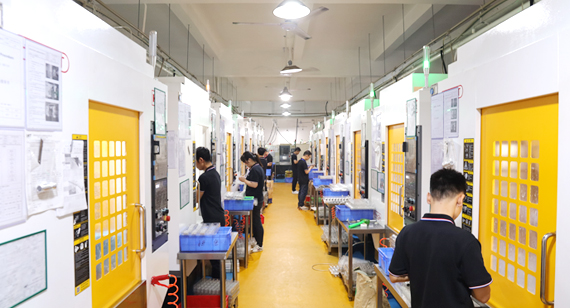
For simple parts:
For simple parts, such as nuts, bolts, pins, cylinders, retaining rings, flat washers, cubes, and other basic geometric shapes, the CNC machining time is relatively short. These parts have relatively simple geometric shapes, typically requiring machining on a few surfaces. Due to the relatively straightforward linear cutting paths, writing the machining program is relatively easy, and the machine tool can complete the cutting operation relatively quickly. In most cases, a simple part can be machined in seconds to a few minutes, depending on the settings of cutting speed, feed rate, and cutting depth, among other parameters.
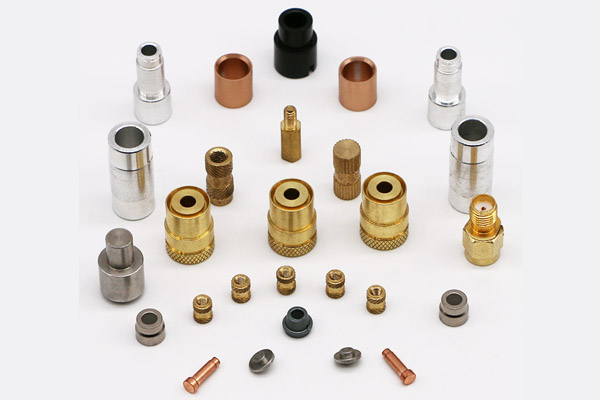
For moderately complex parts:
As the complexity of part geometry increases, for example, gears, cams, crankshafts, and connecting rods, the machining time also increases accordingly. Moderately complex parts may have multiple surfaces, holes, slots, and other features, requiring more cutting operations. Machining such parts requires the development of more complex machining programs, and the cutting paths may become more intricate. During machining, there may be multiple tool changes and toolhead swaps to accommodate various cutting requirements, which adds to the total machining time. Typically, machining time for moderately complex parts can range from minutes to over ten minutes.
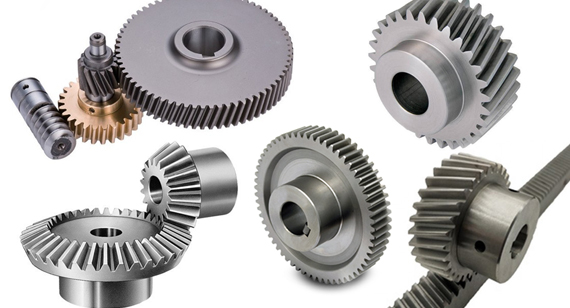
For highly complex parts:
Machining highly complex parts involves more advanced techniques, processes, and equipment. It requires advanced machining skills and specialized knowledge to ensure the performance, precision, and reliability of the final product. These parts are often used in high-tech fields, such as aerospace engine turbine blades, complex spacecraft components, precision instrument parts, medical implants, and more. As a result, precision and accuracy in the manufacturing process are of utmost importance.
The CNC machining process may involve multi-axis synchronized movements and is characterized by longer machining times. This is because the development of machining programs is highly complex, considering the coordination of multi-axis movements and optimization of cutting tool selection and cutting parameters. During the machining process, there may be multiple tool changes, coolant spraying operations, and other operations to ensure machining quality and precision. The machining time for highly complex parts can range from minutes to hours or even longer, depending on the size and complexity of the part.
How long is the processing cycle of CNC machining parts?
The machining cycle for CNC machined parts is not fixed and can vary depending on several factors. There are many CNC machining factories, and the machining cycle for the same product can differ. If a CNC machining factory has limited equipment, lacks proper management mechanisms, and its workforce is not efficient, the machining cycle will naturally be longer. On the other hand, some CNC machining factories have dozens of machining devices, follow structured management systems (e.g., ISO quality management), work efficiently, and can deliver products much faster. Of course, the cycle also depends on the complexity of the parts and the coordination of processes involved. Generally, for 1-10 pieces, delivery takes around 3-5 days, and for 10-500 pieces, it takes 7-20 days.
Factors and methods for estimating CNC machining time for parts
Here are some common factors and methods that can help you estimate the time required for CNC machining of parts:
Part Complexity: The geometry and complexity of the part are major factors influencing machining time. More complex geometries often require more cutting operations and paths, resulting in longer machining times. Simple parts with fewer features and straightforward designs typically have shorter production times, while highly complex parts with intricate geometries may require more time.
Machining Processes: Different machining processes such as turning, milling, drilling, etc., impact machining time. The cutting speed and depth of cut in each process affect the overall time.
Cutting Parameters: Cutting parameters like cutting speed, feed rate, and depth of cut influence machining time. Proper parameter settings can improve efficiency, but improper settings may affect part quality.
Material: The hardness, toughness, and other material properties affect cutting speed and tool life, thus influencing machining time. Machining harder materials like stainless steel or titanium typically takes more time compared to softer materials like aluminum.
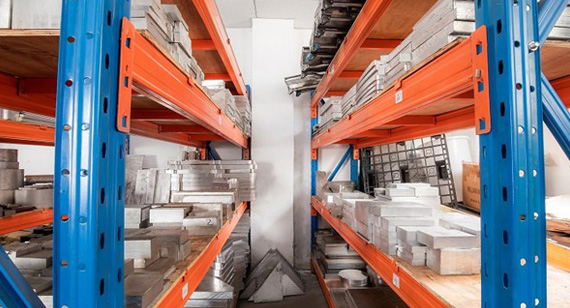
Order Size: The quantity of parts you need affects production time. Larger orders may require more time for setup and machining, while smaller orders can be completed more quickly.
Machine Availability: CNC machining facilities often have multiple machines running multiple projects simultaneously. Machine availability and the current workload can impact lead times.
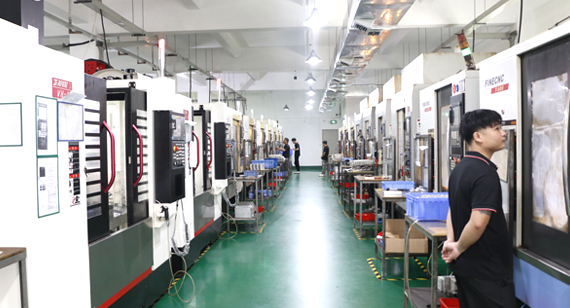
Tolerances and Quality Standards: If your part requires very tight tolerances or high-quality surface finish, additional time may be needed to ensure precision and quality.
Customization: If the part requires custom tooling or special programming, this can extend production time.
Tool Selection: The type, size, and material of the tools also impact machining time. Different tools have varying cutting capabilities and lifespans.
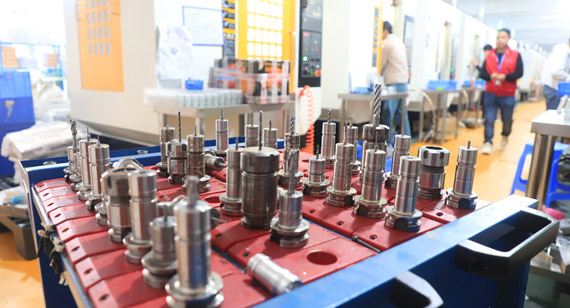
Tool Change and Setup Time: Multiple tool changes or adjustments may be required during the machining process. Tool change and setup times add to the overall machining time.
Machine Performance: The performance and precision of the machine affect machining speed and quality. More advanced machines typically have higher machining speeds and accuracy.
Program Writing Time: Writing CNC machining programs also takes time. Complex geometries and machining paths may require longer programming times.
Post-Processing and Inspection: After machining is complete, post-processing and part inspection are necessary steps. These steps also add to the total time.
Considering these variables, it's challenging to provide specific production days without knowing the exact details of the part and the capabilities of the CNC manufacturer. We recommend directly consulting the manufacturer, providing them with detailed specifications to accurately estimate the lead time for your specific project.
For rough estimates, you can use the following methods:
Estimate based on historical data for similar parts.
Use machining manuals or software to estimate machining time.
Consider the average time for each operation and sum the times for each operation.
Consider factors like cutting parameters, tooling, and material, and use machining time formulas for estimation.
For more accurate estimates, you can use specialized CNC machining software. Input the part's geometric data, cutting parameters, and tooling information, and the software will generate a more precise machining time estimate.
Looking for a reliable cooperative CNC machining factory
Are you in search of a reliable CNC machining manufacturer? Consider giving VMT CNC Machining Factory a try, and let us assist you.
We offer custom CNC machining services for materials such as Peek, Polyimide, PTFE, POM, Nylon, Acrylic, Steel, Aluminum, Titanium, Copper, and more. With 13 years of expertise in CNC machining, whether you need prototype CNC machining or small-batch CNC machining part production, our professional engineering team can help you select the appropriate CNC machining processes to reduce your production costs while meeting your requirements to high standards. To get started, simply upload your CAD files to our email at inquiry@vimetal.com.cn to receive a project quote.
Ready To Start Your Next Project?
Get Instant Quote

Request a Free Quote
Send us a message if you have any questions or request a quote. We will get back to you ASAP!
